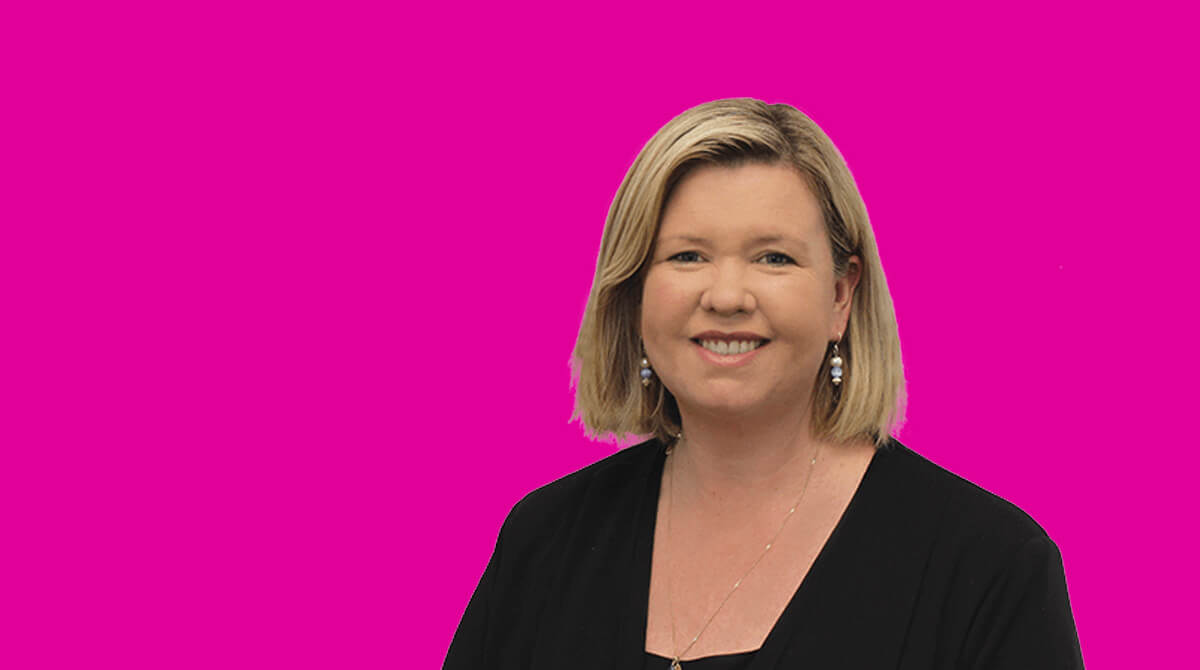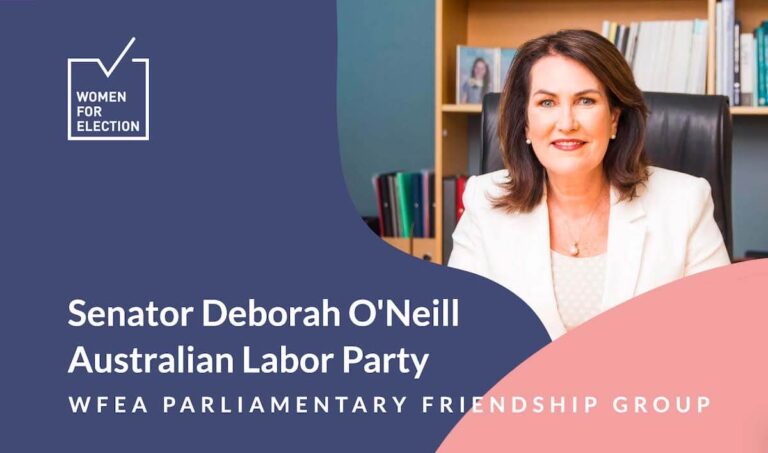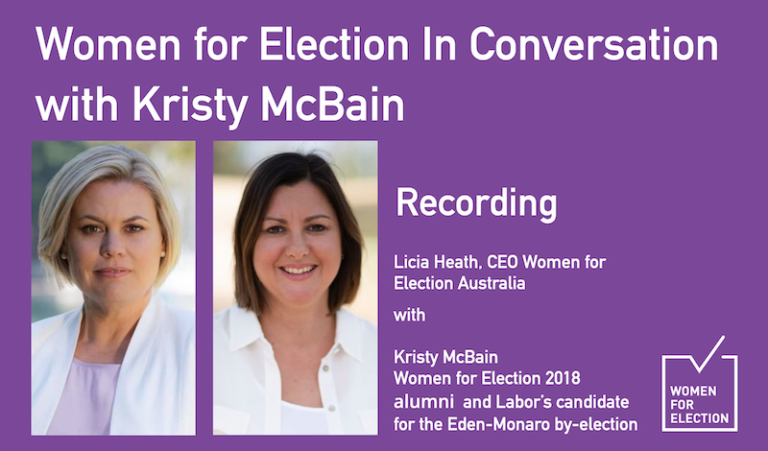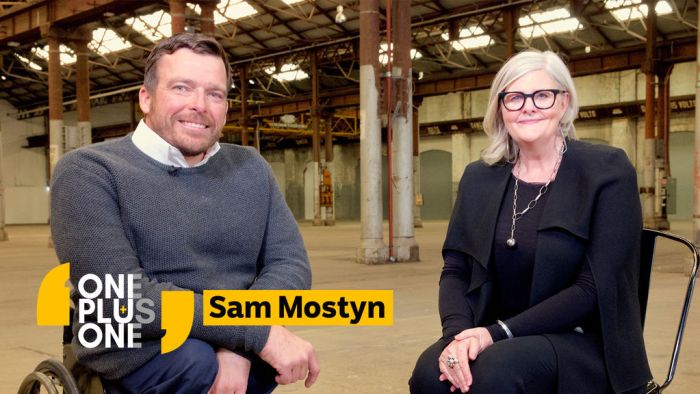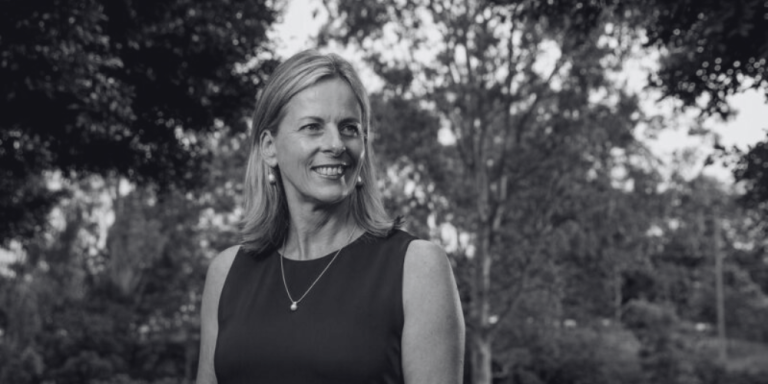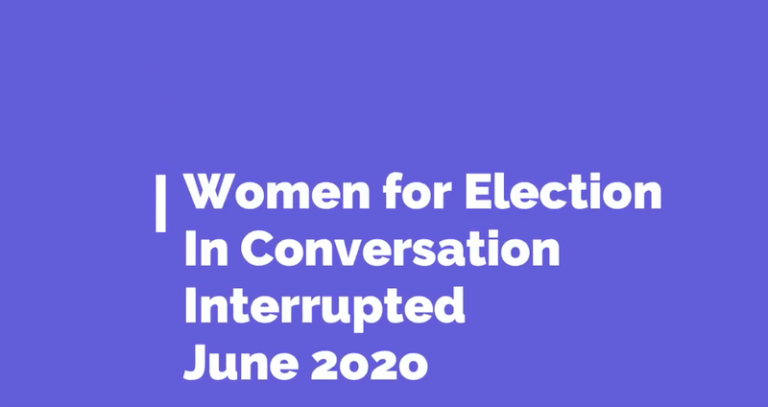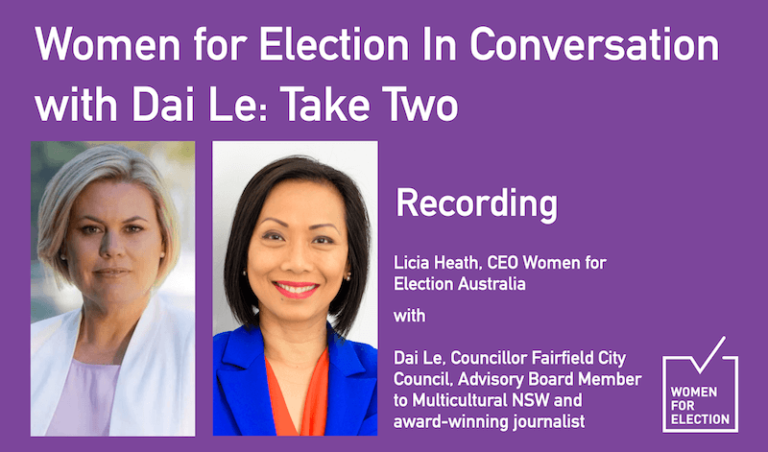Bridget Archer MP ‘In Conversation’
Women for Election were so excited to have Bridget Archer join us for our November In Conversation series to share with us her political journey and her immense bravery that led her to cross the floor on several fundamental issues including, climate, integrity and the Religious Discrimination Bill.
Bridget represents the seat of Bass in Tasmania, known as the “ejector seat” and is the first politician to win re-election in the seat of Bass in 20 years in this year’s Federal election. She even increased her majority with a 1% swing in her favour.
Bridget began her political career in local Tasmanian politics. It was her husband who suggested she run for local council after they moved to a new area and didn’t know anyone. He thought, “if (she) doesn’t get elected, it’s a great way to meet people.”
Bridget was elected to Georgetown Council in 2009 and then ran for Deputy Mayor in 2011. She was elected Mayor in 2014 and in 2018 and contested the 2019 Federal Election where she won the seat of Bass.
Bridget noted that it was never her intention to get into local government and then run federally. She was put on the ticket for Liberal Party as “the sacrificial fifth candidate,” but saw it as “good opportunity” and “experience to learn some things about campaigning and how other people campaign.”
So even though she was unlikely to be successful, she strongly believes that “if you take the opportunities as they present themselves to you, it can take you to places you didn’t expect.”
The data shows that on average it takes three times to run to get elected so it’s important to take all the opportunities to run that you can and showing your ambition is absolutely key.
Bridget wanted to “get involved in public life because (I) want to make a bit of a difference in the world or a difference to (my) community.” The “most positive and probably surprising things to me was just learning what is going on in your community (and) what’s happening across a whole range of different policy sort of areas.”
For Bridget, it’s all about the “local impact” and the “grassroots impact,” which she says is “forgotten particularly now in the modern tribal political environment.”
Bridget emphasised that –
“women have more grassroots, personal connections to their communities,” which is why she believes “it would be great to see more women involved in political life.”
In terms of the barriers women face in entering politics at any level of government, Bridget suggested that“women face such barriers in society generally, it’s not just confined to politics.” The biggest barrier for her to run was “cash and casual, insecure work.”
She also found that “caring responsibilities for women are difficult to accommodate in public life,” especially around taking leave. During her time in local council, she already had a 4 year old, a 10 month old baby and had another 3 babies while she was on council, her last, a month after she was elected Mayor for the first time. “In theory I could take some leave but the reality is that as an elected member it’s very hard to do.”
Bridget noted that it is imperative “to make political environments more family-friendly.” For example, there are on average 18-20 sitting weeks in Canberra for federal politicians which sees her away from her family.
She acknowledged that –
“overwhelmingly women bear the burden of caring responsibilities,” which acts as a “barrier” for many women to enter politics and its “going to cost you something to get involved in political life . . . and you make sacrifices to be able to do that.”
While Bridget recognised that the Labor government is making “positive attempts to try and make Federal parliament a bit more family-friendly, it’s . . . not really.” Labour are trying not to have divisions after 6:30 pm but the other night, Bridget was there until 10:30 pm. So, “the words don’t match what actually happens in practice.
Bridget has always maintained “political perspective,” and believes that “even if you’re in a party … (you are) ultimately there to make decisions for your community.” This ethos has seeped into every political decision she makes.
Over the last 12 months, Bridget crossed the floor on fundamental issues including, integrity, climate and the Religious Discrimination Bill. It became clear early on that Bridget knew what the consequences to her political future would be in breaking ranks, but she deeply believes in the Menzies dictum when it comes to being a member of the Liberal Party.
Bridget spoke about her experience crossing the floor for the first time to support Helen Haine’s Integrity Bill. “It was one of those moments where you feel like everything stopped and I felt the weight of what I was doing at the time. It just felt so important and so necessary and I was really frustrated at the continual lack of action, given that we as a government had actually taken it to an election and had put together a Bill that had been resoundingly criticised, which we hadn’t even introduced into Parliament.”
Bridget believes that she “lighted a fire under the issue of integrity,” and it’s a “great thing that many women have been elected because of Integrity.”
It “subsequently became easier to cross the floor on the Religious Discrimination Bill,” especially because she was “energised by the stories of constituents for whom that religious discrimination bill was literally life and death for them.”
Bridget views the climate debate as a “global issue” and “really feels frustrated that we are arguing still in 2022 about whether it’s a thing or what targets we should have.” The “debate should be about what actions we might take and it’s reasonable to have these discussions and they should be pragmatic ones, not ideological.”
While Bridget has thought about leaving the Liberal party and joining the cross-bench, she constantly “reminds me why I joined the party in the first place and I try to relate back to the values described in the “We Believe Statement.” Bridget “would argue that …many people stopped actually living the values of the Liberal party as they are intended and the way they were designed.”
Bridget doesn’t experience the “ultra right-wing” sentiments as a “Tasmanian Liberal.” “We forget that parties are actually made up of people like grassroots mums and dads and grandmas . . . so I am reminded of those people and those are the people that preselected me and they actually share the values that I hold.”
Bridget sees her “ongoing role” in the Libera Party as to “keep irritating them until something good comes of it.”
Watch Bridget’s “In Conversation” with Licia Heath, WOMEN FOR ELECTION CEO.

